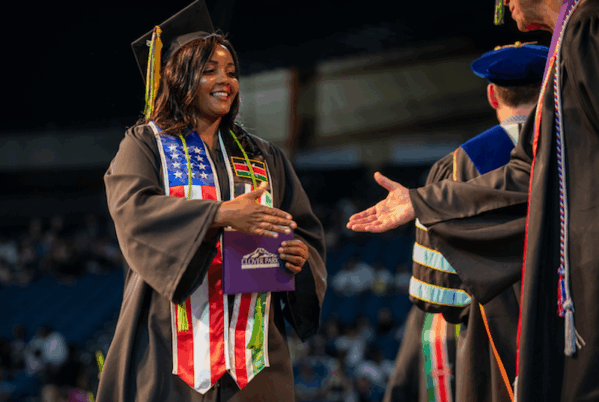CPTC tapped to help redefine credit for past learning
New Initiative Gives Students Credit for Prior Learning
By Jean Borst

Clover Park Technical College (CPTC) is one of seven Washington colleges selected for a new collaborative initiative aimed at rethinking how students earn Credit for Prior Learning (CPL) – an issue that has long challenged higher education.
The program, Constellation of Support: A Capacity-Building Approach to Institutional Change, is led by Student-Ready Strategies (SRS) and the State Higher Education Executive Officers Association (SHEEO). Over the next three years, colleges participating in the initiative will receive targeted, hands-on support to make CPL more accessible – especially for historically marginalized students – by addressing barriers to retention and degree completion.
A complicated system
Credit for Prior Learning gives students the opportunity to earn college credit for what they already know – whether it comes from work experience, military service or other nontraditional learning. It’s a great idea in theory, but in practice the process often falls short.
One of the biggest challenges in Washington is ensuring colleges have consistent, accurate systems to track and report CPL, along with clear and fair methods for assessing and awarding that credit.
“This is something we’ve been trying to figure out for a long time,” CPTC Vice President of Instruction Dr. Tom Broxson said. “Often, people have to repeat a lot of learning they’ve already gotten on the job or in the military, or they don’t get credit at all. They have to start over, which really slows down their path to a degree.”

In some cases, awarding CPL is straightforward – like when someone already holds a recognized credential, such as a Microsoft certification. In those instances, colleges can clearly see what outcomes the student has already met. But for most students, determining what qualifies as CPL – and how to evaluate it – isn’t simple.
“It’s very labor-intensive work,” Broxson said. “It often requires some kind of testing, and a faculty member needs to be available to sit down with a student to assess their knowledge of a subject areas and help them navigate a complicated system. Most individuals aren’t going to have the knowledge to figure that out on their own.”
Support for the work
To help working adults receive credit for the skills and knowledge they already possess, the Constellation for Support cohort will focus on expanding access to CPL and strengthening the systems that support it – with an emphasis on closing equity gaps and supporting student success.
Participating colleges, including CPTC, will receive:
- In-person workshops to support the development of more effective processes for assessing prior learning.
- Quarterly coaching with experts, tailored to CPTC’s specific goals and needs.
- Access to a virtual technical assistance platform offering ongoing support and resources.
- A $20,000 grant to cover project-related costs.
CPTC is currently forming a team to represent the college’s involvement in this effort. The first in-person workshop is slated for September.
Long-term impact
Broxson hopes that the cohort’s work will help pave the way for broader statewide policy or legislative reforms that standardize and strengthen CPL across Washington.
“We need something bigger than local solutions,” he said. “We’ve been talking about this problem forever. It’s not just a Washington issue – it’s a national one.”
According to the National Student Clearinghouse Research Center, an estimated 36.8 million Americans aged 18 and 64 – about 18 percent of this age group – have some college education but no post-secondary credential.